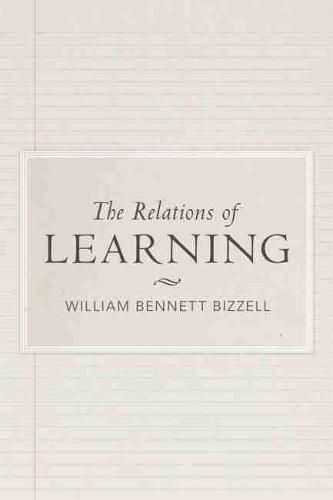Readings Newsletter
Become a Readings Member to make your shopping experience even easier.
Sign in or sign up for free!
You’re not far away from qualifying for FREE standard shipping within Australia
You’ve qualified for FREE standard shipping within Australia
The cart is loading…






In a series of convocation addresses delivered at the University of Oklahoma from 1925 to 1934, university president William Bennett Bizzell outlined the philosophy underlying public higher instruction in the United States during those years. Those addresses are assembled here in one volume, together with the president’s inaugural address, delivered on February 1, 1926; an address delivered at Iowa State College, Ames, in 1934; and an article that appeared in the March 1934 issue of The University of Chicago Magazine.
The Relations of Learning deals with university education in the early twentieth century, a time of great advancement and significant change, and relates the various aspects of learning to the shifting social, political, economic, and educational periods through which the country had passed. It is therefore a stimulating and timely contribution to educational thought and will be welcomed not only by those who have had a share in the development of education, but also by those who have been its beneficiaries.
$9.00 standard shipping within Australia
FREE standard shipping within Australia for orders over $100.00
Express & International shipping calculated at checkout
In a series of convocation addresses delivered at the University of Oklahoma from 1925 to 1934, university president William Bennett Bizzell outlined the philosophy underlying public higher instruction in the United States during those years. Those addresses are assembled here in one volume, together with the president’s inaugural address, delivered on February 1, 1926; an address delivered at Iowa State College, Ames, in 1934; and an article that appeared in the March 1934 issue of The University of Chicago Magazine.
The Relations of Learning deals with university education in the early twentieth century, a time of great advancement and significant change, and relates the various aspects of learning to the shifting social, political, economic, and educational periods through which the country had passed. It is therefore a stimulating and timely contribution to educational thought and will be welcomed not only by those who have had a share in the development of education, but also by those who have been its beneficiaries.